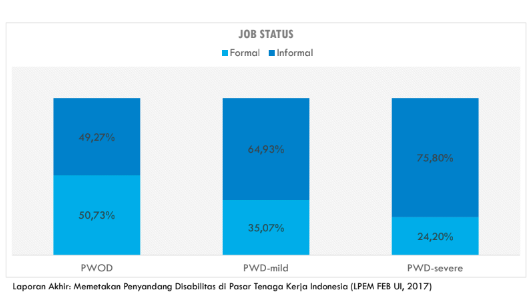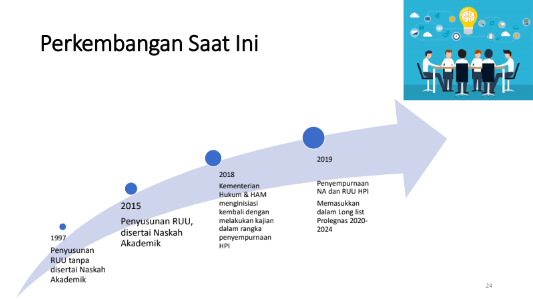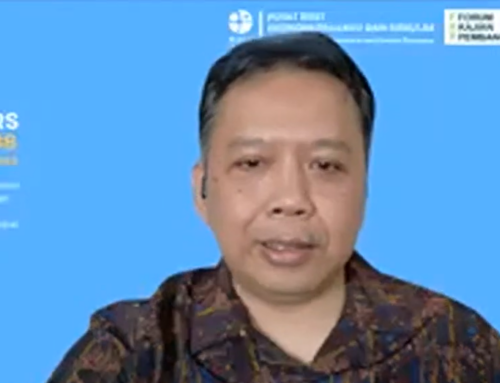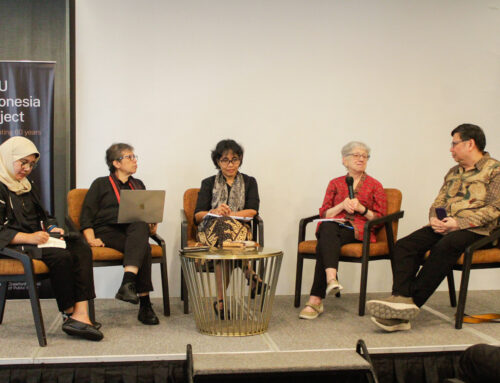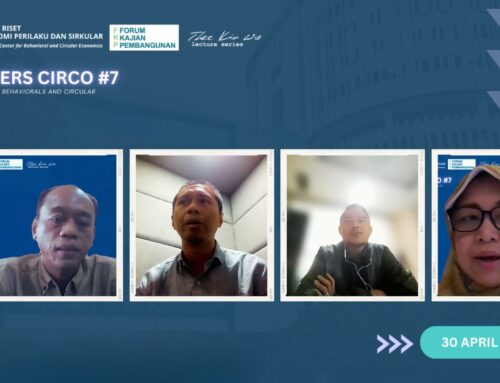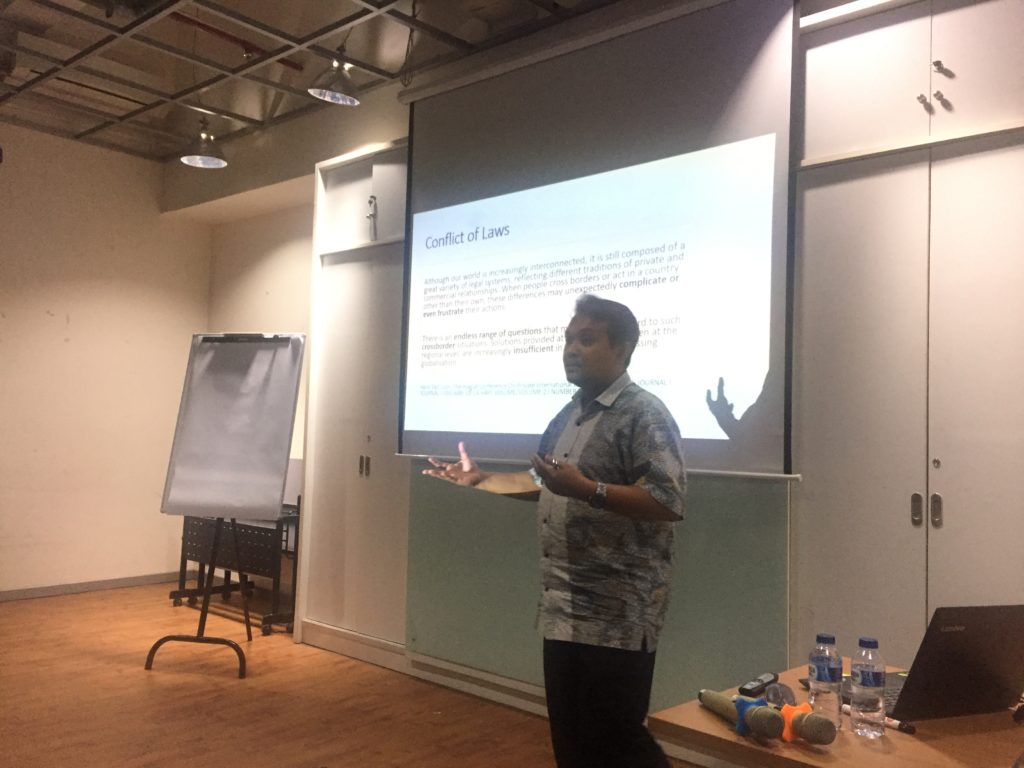 Pusat Studi Hukum dan Kebijakan Indonesia (PSHK or the Indonesian Foundation for Law and Policy Studies) hosted an FKP seminar on Wednesday, 12 December 2018, discussing two subjects: Law Number 8 of 2016 on The Disabled by Fajri Nursyamsi and the International Civil Law Bill by M. Faiz Aziz.
Pusat Studi Hukum dan Kebijakan Indonesia (PSHK or the Indonesian Foundation for Law and Policy Studies) hosted an FKP seminar on Wednesday, 12 December 2018, discussing two subjects: Law Number 8 of 2016 on The Disabled by Fajri Nursyamsi and the International Civil Law Bill by M. Faiz Aziz.
To begin the session, Fajri Nursyamsi (PSHK Indonesia) stated that 8.56% of the population in Indonesia has a disability, which means that around 21 million people are vulnerable to policies that are not inclusive. Quoting the International Labour Organisation (ILO), he stated that a country that excludes person(s) with disability (PWD) from development may lose 2-7 percent of potential earnings per capita. Therefore, a PWD is not unproductive due to their disability, but rather due to lack of facilities and support in their surroundings. To protect and include PWD in development, Law Number 8 of 2016 on The Disabled was introduced. It is considered to be a unique law for its wide scope of sectors (25 sectors including law, regional autonomy, children, tax, etc.) and regulators (30 ministries/government institutions).
Regardless of improved regulations, PWD still face challenges. In terms of jobs, most PWD tend to work in informal sectors, yielding lower income. In terms of education, almost 50% of PWD also did not attend/finish primary school. In politics, the percentage of legislative candidates with disabilities is very small from the total available seats. Moreover, according to the Indonesian Disabled Women’s Association, in terms of legal access many victims of sexual violence do not receive legal aid. However, Nursyamsi still believes that the disability law provides an opportunity for better inclusion because it increases public attention, increases international support, and ease bureaucracies.
Faiz Aziz (Jentera School of Law) continued the session with a presentation on the opportunities and challenges of the International Civil Law Bill in Indonesia. To illustrate the need of an international civil law, Aziz explained how individuals from different countries may encounter transnational scenarios such as marriage and business interactions that involve different legal systems, which may lead to the conflict of laws. Internationally, The Hague Conference on Private International Law is an intergovernmental body that organizes conventions and protocols to eliminate legal barriers related to private and commercial matters with international dimensions. In Indonesia, this matter is regulated in Algemene Bepalingen van Wetgeving voor Indonesie (AB) S. 1847-23. In 1997, the government introduced an international civil law bill, which was drafted again in 2015 to include more matters, such as adoption, international kidnapping, legalization of public documents, etc. This bill faced some challenges since it is not considered important and therefore not included in the long list of National Legislation Program. In addition, the list of related regulations is very large and requires a comprehensive discussion. On the other hand, increased regionalization, globalization, and technology, the development of Indonesian civil law, and the development of judicial reform create opportunities for the bill to become a law.
